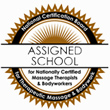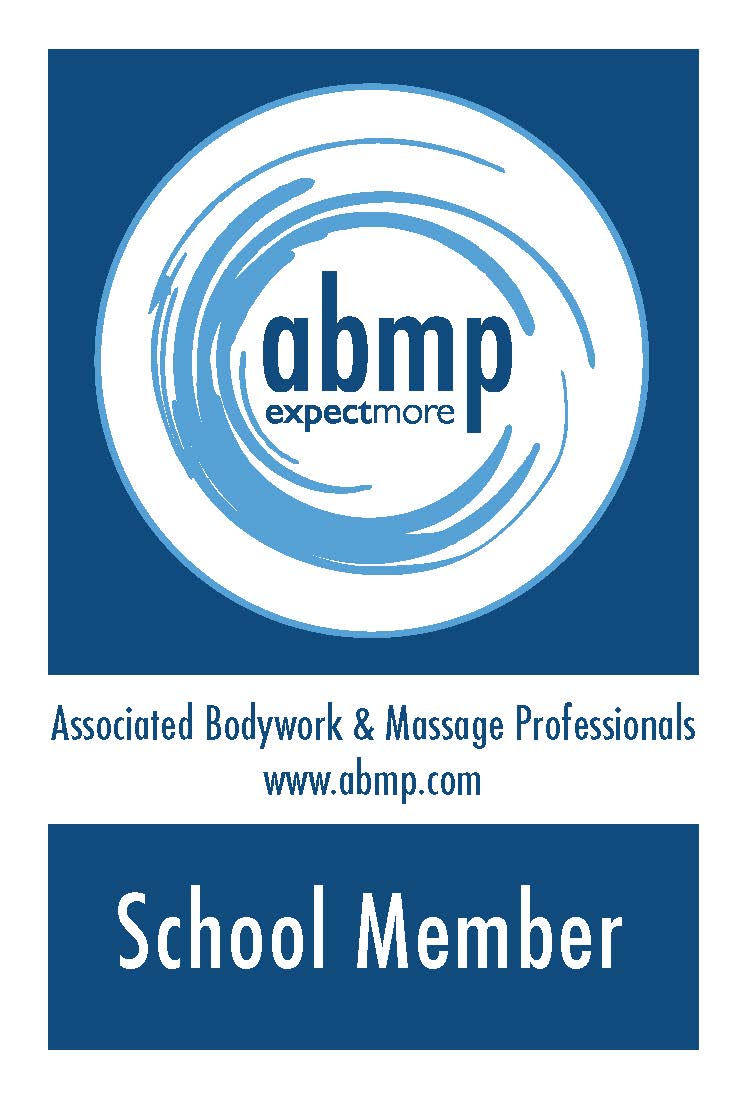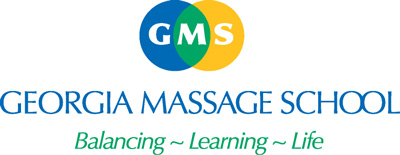
Step 1: Learn About the Career & Establish Goals
Massage therapy is a great career path, but there are some critical choices to make before entering the field. While you don’t have to have everything figured out beforehand, it is essential to establish some goals for yourself.
First, ask yourself what type of massage you would like to learn. There are dozens of modalities, from deep tissue massage to sports massage, and which ones you focus on will dictate the type of clients you will likely see.
Then, ask yourself if you want to work as a solo practitioner or for an established massage business or spa. While many licensed massager therapists are self-employed, most began their careers as an employee for a couple of years to better understand the ins and outs of the business side of things.
Step 2: Complete a Therapeutic Massage Program
If you have a high school diploma and an interest in massage, you are qualified to enter a massage therapy program. Typically, a diploma takes around 15 months and can be completed at a vocational or career training college.
Your program of study should include courses like anatomy and physiology, clinical massage applications, and therapeutic massage. Be sure to ask your admissions representative what classes are required for graduation from the program.
Step 3: Pass the Necessary Licensing Exams
After completing their programs and training, massage therapists must pass a written and practical exam to become officially licensed. Though requirements vary from state to state, students in Georgia should complete the national test called Massage and Bodywork Licensing Examination (MBLEx). This computerized exam is administered by the Federation of State Massage Therapy Boards (FSMTB) in 44 states to assess a candidate’s educational background and knowledge.
Completing the national exam is one of the most crucial steps to becoming a licensed massage therapist. The MBLEx is a 100-question, multiple-choice test that must be completed in under two hours. The questions cover various topics relevant to massage therapists, including the following:
- Anatomy & Physiology
- Kinesiology
- Pathology, Contraindications, Areas of Caution, & Special Population
- Ethics, Laws, & Boundaries
- Client Assessment, Reassessment, & Treatment Plan Formulation
- Guidelines for Professional Practice
The Importance of Passing Your Examinations
Employers and clients prefer licensed massage therapists because they usually represent professionalism based on their training, skills, and commitment to ethical practices. That’s why passing the required examinations, including the MBLEx, is crucial. Passing this test not only indicates the candidate is capable of meeting practice standards and safety but also demonstrates that the massage therapist has the skills and knowledge necessary to succeed in the industry.
STEP 4: GET YOUR BUSINESS LICENSE
If you are planning to work in a spa, healthcare setting, or somewhere else as an employee, then you can skip this step. However, if you plan on working as a solo practitioner, you will need a business licensure. According to the American Massage Therapy Association, solo practitioners account for 67% of all practicing licensed massage therapists. That means there is a good chance this step will be important.
To get a business license as a massage therapist in Georgia, you need to follow several steps:
- Meet Your Educational Requirement of 500 Hours of Clinical Training
- Pass the Licensing Examinations Approved by the Federation of State Massage Therapy Boards
- Register with the Georgia Board of Massage Therapy
- Provide Proof of Meeting Continuing Education (CE) Requirements for Annual License Renewal
- Fill Out & Submit a Business License Application
- Register Your Trade Name
STEP 5: KEEP LEARNING & TEACHING OTHERS
Continued education is very important when it comes to being a licensed massage therapist. There are so many different techniques and philosophies related to the career that you will find it a necessity to continue to add to your professional repertoire. This makes your services more valuable to current and potential clients or employers.
As you begin to become more confident and highly skilled as a licensed massage therapist, you may find that you enjoy sharing your knowledge with others. That means it is a great idea to sign up to instruct a massage class or teach employees at the business you work for, manage, or own to help other therapists sharpen their skills. [/NC]
The Importance of Passing Your Examinations
Employers and clients prefer licensed massage therapists because they usually represent professionalism based on their training, skills, and commitment to ethical practices. That’s why passing the required examinations, including the MBLEx, is crucial. Passing this test not only indicates the candidate is capable of meeting practice standards and safety but also demonstrates that the massage therapist has the skills and knowledge necessary to succeed in the industry.





You must be logged in to post a comment.